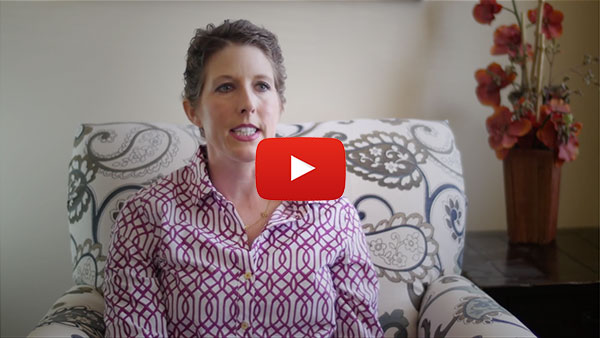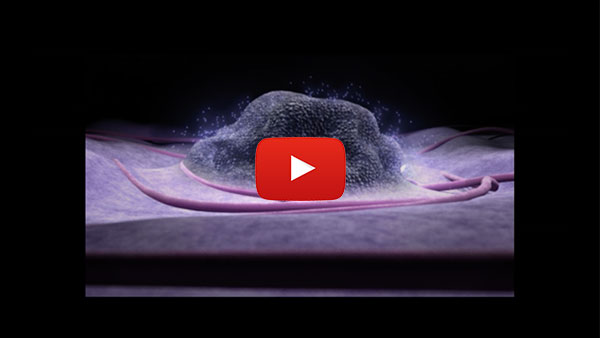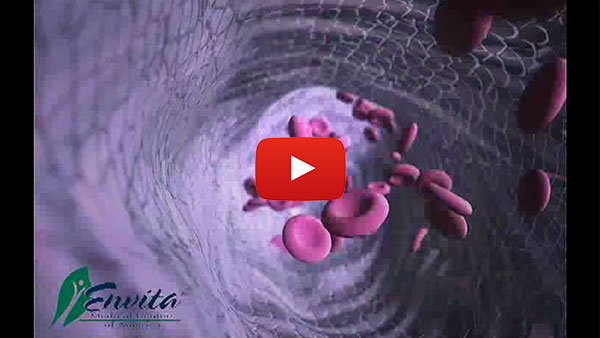3 Risks Associated With the Watch and Wait Approach for Cancer
Advanced Biopsies, Blood Tests, and Targeted Immunotherapies to Overcome the Anxiety of the Watch and Wait Approach

Your cancer treatment is never complete without an effective follow-up care plan and detailed monitoring going beyond tumor markers and imaging, but this plan should not just put you on a watch and wait approach. While worrying about a potential recurrent cancer diagnosis is not advisable, simply watching out for symptoms and going through certain standard cancer care tests periodically may not always be enough for active surveillance of the disease.
What is Cancer Recurrence?
When cancer comes back after treatment, doctors call it a recurrence or recurrent cancer. This could happen when a small number of cancer cells survived the treatment and were too small to show up in follow-up tests. Over time, these cells grow and may become tumors.
Types of Recurrent Cancer

Local Recurrence

Regional Recurrence

Distant Recurrence
Recurrence Estimates of Cancers Following Standard Oncology Treatment
- Cancer Type
- Recurrence Rate
-
Cancer Type Bladder
-
Recurrence Rate 50% after cystectomy
-
Cancer Type Breast
-
Recurrence Rate 30% overall
-
Cancer Type Colorectal
-
Recurrence Rate 17% after curative surgical resection with microscopically clear margins
-
Cancer Type Head and neck, stage IV
-
Recurrence Rate After intensified, split-course, hyperfractionated multiagent chemoradiotherapy: 17%, locoregional 22%, distant
-
Cancer Type Hodgkin lymphoma
-
Recurrence Rate 10% to 13% after primary treatment; 20% to 50% after second-line treatment
-
Cancer Type Kidney
-
Recurrence Rate 13%; 49% after complete response to tyrosine kinase inhibitor therapy
-
Cancer Type Lymphoma, DLBCL (diffuse large B-cell lymphoma)
-
Recurrence Rate 30% to 40%
-
Cancer Type Lymphoma, PTCL (peripheral T-cell lymphoma)
-
Recurrence Rate 75%
-
Cancer Type Melanoma
-
Recurrence Rate 15% to 41%, depending on stage; 87%, metastatic disease
-
Cancer Type NSCLC (non-small cell lung cancer)
-
Recurrence Rate 26% after curative surgery; 27% after chemoradiotherapy for locally advanced disease
-
Cancer Type Osteosarcoma
-
Recurrence Rate 11%-12% local recurrence; 5%-45% metastasis
-
Cancer Type Ovarian
-
Recurrence Rate 85%
-
Cancer Type Pancreas
-
Recurrence Rate 36% within 1 year after curative surgery; 38% local recurrence after adjuvant chemotherapy; 46% distant metastasis after adjuvant chemotherapy
-
Cancer Type Prostate
-
Recurrence Rate After prostatectomy at 10 years: 24% low-risk disease; 40% intermediate-risk disease; 48% high-risk disease;
-
Cancer Type Soft tissue sarcoma
-
Recurrence Rate 50% after adjuvant chemotherapy; Nearly 100% for advanced disease;
-
Cancer Type Thyroid
-
Recurrence Rate Up to 30% for differentiated thyroid carcinoma; 8%-14% after surgery for medullary thyroid carcinoma;
Source: https://www.cancertherapyadvisor.com/home/tools/fact-sheets/cancer-recurrence-statistics/
Recurrence rates vary widely between cancer types, patients and sub-types, with specific patient-related factors like genomics, transcriptomics, immune system, metabolic drivers, root causes, stage at initial diagnosis, and other factors also influencing the chances of recurrence. For instance, certain types of prostate cancer or colorectal cancers may be slow growing while others may be aggressive with a higher risk of recurrence. Due to these variations some patients may experience rising PSA (Prostate Specific Antigen) levels, abdominal pains, or other symptoms of recurrence despite removal of the prostate or affected parts of the colorectal regions.
Irrespective of whether you were treated for late stage or an early-stage cancer of any type, you should be able to utilize the latest advancements in cancer research to reduce chances of a recurrence or further metastatic spread to other parts of the body. Facilities like Envita Medical Centers, an integrative Center of Excellence for Precision Oncology, focus on bringing the latest healthcare technologies of precision oncology into clinical practice to detect early signs of metastasis, causes and metabolic drivers to minimize chances of cancer recurrence, even after successful completion of treatment.
Dr Dino Prato states, “treating the cause of cancer for each patient and rebuilding the immune system becomes critical for long-term remission. Everything from diet, exercise, detoxification, sleep, correct supplements, oxygenation to tissue needs to be dialed in for each patient for overall plan of health and healing.”
The following are some of the risks associated with watchful waiting after cancer treatment:
1. Delay in Diagnosing a Regrowth, Recurrence, or Metastasis
The lack of adequate tests and timely posttreatment interventions may lead to delays in diagnosing regrowth, recurrence, or metastasis. Multicenter studies show that even in patients with clinical complete response managed by watch and wait after neoadjuvant therapy for rectal cancer, development of local regrowth at any time is a risk factor for distant metastases [2]. The risk of distant metastases remains higher for five years after development of local regrowth.
Even patients with isolated locoregional recurrences (ILRR) of breast cancer have a high risk of distant metastasis and death from breast cancer, which is why randomized controlled trials have been undertaken to establish whether adjuvant chemotherapy improves the outcome of such patients [3]. Other medical studies also highlight that even a four-week delay of cancer treatment is associated with increased mortality across surgical, systemic treatment, and radiotherapy indications [4].
The Envita Countermeasure
- The specially trained team of physicians, with over two decades of clinical experience in practicing integrative oncology, utilize advanced liquid biopsies and other proprietary blood tests, which help in early detection of signs of micro metastases. In certain cases, the micro metastatic cancer cells break away from a growing tumor, which may be as small as 2mm in diameter, entering the patient's blood stream even before surgical removal of the tumor. The test results of Envita's proprietary liquid biopsies are based on a detailed analysis of these Circulating Tumor Cells (CTCs) in a patient's blood stream, which helps in early detection and proactive treatment of the disease even before patients start experiencing symptoms of recurrence. Assessment of CTCs is an earlier, more reproducible indication of disease status than current imaging methods.
- The Envita team also utilizes whole body MRI (Magnetic Resonance Imaging) and other proprietary tests to reduce chances of missing any formative signs of regrowth or recurrence or even the new occurrence of different cancer. MRI is used in cancers to detect recurrence of disease. Even in case of a recurrence, the physicians develop customized protocols, which include powerful adjuvant and neoadjuvant treatments, minimally invasive surgeries, and other precision oncology options. They focus on prioritizing organ preservation, avoiding the side effects of invasive surgeries, and helping patients progress towards a holistic recovery.
2. Overlooking the Impact of Standard Chemotherapies, Radiation Therapies, or Chemoradiation
Standard conventional treatments for cancer include maximum therapeutic dose untargeted chemotherapies, radiation therapies, both the treatments combined in chemoradiation, or other invasive surgeries. However, the impact of these treatments on the immune system often gets overlooked in the conventional treatment approach and studies indicate how a poor immune recovery may increase a person's susceptibility to adverse health outcomes [5].
Latest scientific studies also show that high-dose radiotherapy shaped an immunosuppressive tumor microenvironment to support tumor growth [6], which is why combining it with precision targeted immunotherapies can be an effective strategy to mitigate immune suppression.
The Envita Countermeasure
- The Envita team focuses on the immune system at every step of each patient's treatment because it plays a crucial role in curbing chances of a recurrence. They include various levels of advanced personalized immunotherapies in each patient's protocols to give them a greater chance of responding to care and sustaining lasting outcomes.
- Recent studies about "New approaches on cancer immunotherapy" highlight that defining the immune profiles in individual cancer patients by using biomarkers indicative of immune evasion may reveal more efficient combination therapies [7], which is what the team at Envita aims to work towards.
- Drawing from the latest cancer research, Envita focuses on converting an immune suppressed or “cold” tumor into an inflamed or “hot” tumor, which has the potential to greatly improve the efficacy in eliminating the primary tumor and preventing metastatic recurrence. The immune system in a majority of cancer patients suffers from systematic destruction during tumor progression, which is why advanced personalized immunotherapies are critical for providing comprehensive treatment to cancer patients. By harnessing the power of the immune system, these advanced therapies provide new avenues for enhancing long-term outcomes and improving the quality of life for cancer survivors.
3. Limited Treatment Options
If the cancer does not get detected and checked in time, patients may run the risk of hitting a roadblock as treatment options are often limited in the later stages. Medical studies show that in several of the most common malignancies, local recurrence predicts a significantly worse oncologic outcome and quality of life [8], which is why adopting an active surveillance mode can be more beneficial than the watchful waiting approach. Active surveillance to identify early signs of recurrence or metastatic spread, even after successful completion of treatment may be a gamechanger in enhancing the chances of an overall survival.
The Envita Countermeasure
- The Envita team focuses on a robust home support program which includes advanced tests and regular consultations with physicians to avoid chances of missing out on signs of recurrence, after successful completion of treatment.
- To go beyond the limited number of options available in most cancer specialty facilities, Envita Medical Centers, being a truly integrative clinic, breaks away from the National Comprehensive Cancer Network (NCCN) guidelines. The team of physicians practicing integrative oncology aims to combine the benefits of conventional medicine with evidence-based natural and alternative therapies.
- Bringing the best of both worlds of medicine to precision-target the cancerous cells while concurrently boosting the patient's immune system has the potential to work in favor of early stage as well as late-stage patients. While patients with early-stage cancers may sustain lasting outcomes with minimal chances of a recurrence, late-stage patients get the opportunity to access a wider toolkit of options.
- Opening the doors to a greater number of options is one of the primary reasons behind the successful recoveries of patients, some of whom had been recommended hospice care by other standard cancer treatment facilities in the country.
Call Us Today
The specially trained team at Envita comprises board certified oncologists, interventional radiologists, and naturopathic physicians. Irrespective of their board certification and years of practice, every physician goes through an intensive 1,500 hours of training to practice this level of advanced personalized precision oncology with special focus on immuno oncology. If you or your loved ones have any questions about a cancer diagnosis or recurrence after successful completion of treatment, please feel free to call us at: 866-830-4576. May God bless you on your journey to recovery.




















